Maintaining the correct temperature is not advised but necessary when handling perishable products such as pharmaceuticals, food, or sensitive chemicals. Temperature-controlled warehousing has been part of the logistics for the freshness of fruits and the effectiveness of life-saving vaccines. Highly accurate conditions controlled within these environments guarantee the best form of such perishable items irrespective of travel time.
The Science Behind Temperature-Controlled Warehousing
At its core, it uses regulated environments to maintain product stability. The temperatures would vary, depending upon the industry. So, pharmaceuticals might require a temperature between 2°C and 8°C. However, frozen food can require a temperature -18°C or colder. The problem is maintaining these temperatures and holding them stable throughout warehousing and transportation. Thus, any deviation in set temperatures exposes the product to quality and safety risks.
Such companies that manage global supply chains need a warehousing and logistics partner that understands the needs well. Besides providing flexibility in choice for refrigerated storage or deep freeze solutions, this would further give a global reach in ensuring that cold chains are maintained, even across borders, where climate and local regulatory challenges become pertinent.
Customised Global Reach
Today, businesses have a world market and are not restricted to regional providers or buyers. Pharmaceutical firms ship vaccines to food companies and import the more exotic ingredients. Such a scenario demands a dramatically improved logistics services while providing temperature-controlled warehousing services. This is important for companies whose goods require transport over extended distances without being compromised in their integrity.
For instance, pharmaceutical companies that rely on air freight for temperature-sensitive products from the warehouse to final delivery at the destination require a fully integrated solution. At this point, the logistics provider makes the difference between the difference that customs clearance services can make or general transportation management – ensuring that time-sensitive goods spend one minute less than they have to.
How Warehousing Supports Industry-Specific Needs
Hence, where needs in warehousing are concerned, they vary significantly from industry to industry. For instance, in the food industry, temperature control varies between the safety and goodness of the product and one that is in no way saleable. Dairy, seafood, and meat must always be kept under précised conditions so as not to perish. The demand for fresh food has increased significantly throughout the world. Today, shipping significant volumes involves ocean freight logistics and warehousing and ensuring product safety at the same time.
However, storage conditions in the pharmaceutical industry may be even more sensitive. Sometimes, these temperature changes will degrade the medicines, vaccines, and other health care products. Manufacturers would hence look for an air freight forwarder in Mumbai or any other world logistics hub to ensure that their cargo is handled appropriately to the nature of the goods involved. Temperature monitoring systems have developed the vehicle to use real-time data even further for dynamic alteration of the conditions to ensure that the required environment is in all journeys to the perishable goods or items.
Knowing the Regulatory and Compliance Challenges
Global trade is regarded as very complex, more so in streams of business involving perishables. The business’s regulations differ from country to country, and an exporting or importing business must comply with the local requirements to ensure that it receives its produce across borders smoothly. As far as India is concerned, food products entering India are supposed to clear FSSAI import clearance. Cross-border shipping also experiences problems; clearance takes time, and perishable products require better quality. As such, products must always observe their temperature level at regular intervals.
In such regions, the experienced clearance agent plays an essential role. The agent provides people with complicated paperwork and ensures compliance with regional legislation. Therefore, warehousing and transportation processes operate smoothly. For businesses relying on fast and reliable air or sea transport, logistics responsibility would ensure that all aspects of the cold chain remain intact.
Temperature-Controlled Warehousing
Advances in logistics technology have made warehousing temperature-controlled more efficient than ever. Today, real-time monitoring systems that use IoT enable the logistics partner to track changes in temperature and make necessary adjustments accordingly. For this reason, goods now stay within the specified range from entry into the warehouse until delivery.
Another technology is blockchain, which, in temperature-controlled logistics penetration, gives real-time insight into the status of the goods but in a transparent and immutable record of each product’s journey. The party can track shipment status and location from the freight-forwarding company to the warehouse manager without breaking the cold chain.
While temperature-controlled warehousing would be an essential component of a business, in the end, it’s about the bottom line of money saved versus getting what needs to be accomplished. Ocean freight services are pretty cheap for large quantities of such as food products and, again, just need to make this required approach work. Goods may spend weeks enroute, while an entire shipment can be at risk if not held at the right temperature. However, air freight forwarding services offer faster solutions for shipments that must be kept urgently or held at high value but cost more. The trick would be finding the right balance depending on the requirements of the product.
One-Stop Solution for Temperature-Controlled Warehousing
So, whether you’re a perishable goods company requiring flexible, global solutions or keeping the product frozen throughout its transportation and storage, Prime Logistics stays the trusted partner for an efficient cold chain. Your products will be housed inside our temperature-controlled warehouses or transported around the globe, all with services that will see your sensitive goods receiving exceptional care. With years of experience managing complexities in international logistics, we can help you expand your business as its logistics are delivered hassle-free, cheaply, and safely at each stage.

When migrating to another country, one has to consider visas, housing arrangements, and finance. However, most of us have one greater consideration that outweighs all this: our pets. How will we ensure that they will be safe and sound when they need to be taken on such a big move? As the amount of people who take their pets across borders is on the rise, so are the ethics regarding international pet transport development of importance.
Ethical international animal transport basically talks of taking care of and treating them as they ought to be. It is not only a matter of transferring them from one place to another but rather every stage of the process, right from the beginning, is a way to ensure that their interest is taken care of. Shipping animals internationally may be complex logistics on an international level, but what remains at the bottom line is there is a greater moral obligation to make sure pets receive humane treatment.
Travel is indeed a very stressful experience for most pets, as they are out of their comfort zone and familiar surroundings, and are exposed to sounds and odours that may be strange and uncomfortable for them. It is for this reason that consideration should be given to an ethical way of transporting pets, giving foremost consideration to the animal’s needs and comfort.
Of the qualifying criteria necessary for ethical international pet transport, health is probably one of the most critical because it ensures the animal is well-equipped for travel. It should be more than a perfunctory visit from a vet; detailed health clearances, up-to-date vaccinations, and concerns for health problems that could possibly contraindicate safe travel ought to be researched as well. For instance, some breeds of dogs fall into the category of brachycephalic-meaning, because of their anatomy, complications can arise that make it hard for them to breathe. The carriage of these breeds has to be with maximum precautions to avoid being exposed to conditions that might compromise their states.
But health is not only about the impact of an environment; it is also about how the pet is carried during transport. This goes a long way in stating the overall well-being of the animal at the time of transportation. Ethical transport entails the provision of a safe, comfortable space for the animal during the time of transit. That would include a crate of sufficient size to allow the pet to stand, turn around, and lie down with ease. It also means that it is sufficiently ventilated and secure from potential stress or injury to the pet. Minimising Stress During Transport Quite a lot of stress is imposed on pets with regard to travelling, especially if they are not used to being confined for a long time. An ethical international pet shipping service would, therefore, go ahead to ensure that they help reduce this kind of stress. They would thus always advise the owner to acclimatise their animal to the travel crate well ahead of the trip. This will make the pet view the crate as a safe haven and not something to be terrified about.
Familiar objects, which the animal is used to, such as a favourite blanket or toy, can also be stuffed in the shipment for comfort. This will provide that personal touch that will significantly help relieve the animal of stress. Ethical pet transport services understand the necessity of handling pets with care. That much stress that pets undergo might be avoided with the use of professional experts who know just how to handle animals in a soft and cool manner.
The movement of pets across borders brings in a very important question of the selection of service providers, and this is where Prime Logistics comes into ascendancy. They are so unlike any other transport service because they very truly realise that relocating a pet is much more than logistics; rather, it has to do with ensuring that each and every aspect of the travel is managed, keeping the welfare of the animal on top.
Prime Logistics has mainly dealt with complete international pet shipping services, presumably beyond what could be described as ‘basic’, from health cheques and documentation to crate preparation and route planning. Their uniqueness is hereby granted by considering every detail of the pet’s journey.
For instance, Prime Logistics will not book the cheapest flight but will opt for airlines and routes that are known to be pet-friendly, with temperature-controlled cargo holds and very gentle handling procedures. This will be extremely important to pets that have specific needs-for instance, pets that are given respiratory issues. The attention to detail at Prime Logistics ensures that your pet is as comfortable as possible during the journey, in addition to safety.
Nevertheless, with the very best efforts of any international pet transport company, challenges and issues of ethics are thrown open. One of the more common apprehensions involves the possibility of mishandling or negligence during shipment. This is precisely why it becomes so important to choose a company that has a good past record and very clearly stands committed to animal welfare.
Another very important factor is special needs pets. Particular animals of this sort, like a high-demanding older dog or even a cat with a medical condition, would necessarily require many more extensive degrees of care and attention. The really ethical transportation services have a set of protocols in place and trained staff to facilitate the particular requirements of your animals. In the context of Prime Logistics, it would mean there is always staff on site that can respond to any issues arising during the journey.
Full transparency concerning all the processes undertaken in the transportation of the pets and risks mitigated should be extended to owners. In this respect, Prime Logistics stands in a very good position. The lines of communication are clear; at each stage of the journey, one is updated on the whereabouts of their consignment. This heightens trust and confidence that your dear animal is in good hands.
The future of ethical international pet transport is one of constant improvement and innovation. As more people become aware of animal welfare, the need to avail transport services that actually put the welfare of the pets first will increase. Prime Logistics set the bar high by not only meeting but setting new standards for the industry.
This means much better assurance for those owning pets. The assurance is that by investing in a company concerned with ethics on par with logistic concerns, your pet is in good hands. Long may the journey be, yet it can surely be an enjoyable experience with the right support in place for yourself and your furry friend.
After all, the ethics of shipping pets overseas are not about A to B but an assurance that every minute detail has been taken care of in a caring and compassionate way with regard to their well-being. Shifting your pets abroad or considering the process, remember one thing: the welfare of the animals is above everything else. This can always be a priority with the right type of partners, such as Prime Logistics.

In the pharmaceutical industry, everything is about timing. The product, be it from life-saving medicines to vaccines and treated bandages, has so much at stake that the smallest delay is unacceptable. And that’s when the application of just-in-time delivery philosophies is maximally enforced-ensuring that exactly the right product arrives at exactly the minute it’s supposed to-without inventory or expensive storage cost overruns. However, doing it right is more than a mix of intentions; it means having international freight forwarding expertise to navigate the complexities of global logistics.
Take a case in which a pharmaceutical company wants to ship a batch of vaccines, which are temperature-sensitive, across continents. These would not be common products; they would have a short shelf life with the most stringent handling requirements. This is what just-in-time delivery is about supplies easily reach there, at the right point, at the right time, with no scope for error.
These delicate balances are possible due to the presence of freight forwarders or forwarding companies. These logistics professionals handle air cargo logistics, right from clearing cargo through customs. That’s all with the intention of ensuring the shipments are timely and secure and compliant with regulations; it’s not just moving boxes but moving them in a way that ensures the integrity and effectiveness of these goods.
Freight forwarding is often an unsung hero in the pharmaceutical supply chain. Coordinating the delivery of very sensitive samples biologically or medicines urgently needed calls for proper planning, real-time temperature controls, and good knowledge of logistics.
That’s where freight forwarding services shine. They ensure that even the most delicate shipments reach their destination safely and on time. Companies like Prime Logistics bring their expertise to the table, handling everything from international transport to customs clearance services. If you’ve ever searched for international courier services near me, you’d want a provider who understands the critical nature of these shipments.
Air Cargo: Speed Meets Precision
Very often, within the pharmaceuticals sector, there is no time to spare. It is in this respect that air freight logistics become the preferred way to get products to their destinations quickly. But it is not just a matter of speed; precision and care play an equally significant role.
Every tiny detail in air freight involves strategic thinking, including route planning and air freight charges. The intention is to get products delivered quickly-yet without compromising the product’s quality. A trusted logistics partner is what all takes to get the much-needed quick and cost-effective shipment.
International shipping issues, all these can be magnified when distributing pharmaceutical products. With missions that are really time-bound, consequences from the way customs deal with things can be critical. These are the reasons why customs clearance services are important.
An experienced customs clearance agent knows the ways of the complex rules and regulations under which pharmaceutical shipments are dealt with. He will ensure that all documentation is correct and proper, thus averting the delays that can be rather expensive, ensuring that the product gets to its point of distribution in good time.
You may also like to read “7 Challenges in Supply Chain Integration“
Pharmaceutical companies are selling their products globally, inviting the necessity for a logistics partner with an equally strong global reach. International logistics services assure that even products going to the farthest part of the globe can be easily dispatched with the same care and preciseness.
With its broad network and rich experience, Prime Logistics can handle all the challenges involved in global shipping. Be it the case of managing shipments out of Mumbai or catering, through coordination, to the different areas across the continents, they lend the right reliability and efficiency that the demanding pharmaceuticals industry needs.
Just-in-time delivery is expected to further rise with increasing innovation in the pharmaceutical industry. Freight forwarding in the pharmaceutical supply chain will become even more crucial with advances in personalized medicine and the call for quick response to global health emergencies.
Prime Logistics is positioned right at the leading edge of this evolution. They can handle the details to do with air cargo logistics, its customs clearance process, and all types of complexities involved in international shipments. This way, it becomes a critical partner to pharmaceutical companies. It doesn’t send the message of where and when the given products should reach just like those in the business arena, where timing may signify life or death.
Consider this whenever you receive a medication or vaccine: the sophisticated logistics it takes so that this can happen. Every on-time delivery has behind it a team of experts under Prime Logistics that is at work 24/7 to ensure the pharmaceutical supply chain remains smooth and efficient.
It is always challenging to deal with the numerous rules and regulations of importing food products into India. The Government of India, through the Food Safety and Standards Authority of India (FSSAI), also applies standards that any imported foods must meet. Understanding these regulations is important for businesses involved in international logistics services, particularly companies that provide freight forwarding and customs clearance services.
FSSAI import clearance guarantees that all imported foods in India conform to the set food safety standards. This involves activities such as document checks and verifications, which may entail reviewing documents and physically examining the shipment’s product. Thus, it is crucial for importers who contract logistics services in India to be aware of such regulations to eliminate possible problems and perform more efficiently.
Key Compliance Tips for Food Importers
Know Your Documentation: Documentation is fundamental to the FSSAI import clearance process because it is the foundation of approval. The IEC, FSSAI license, bill of entry, and NOC from FSSAI are deemed crucial. One way of making this easier is working with a trustworthy customs clearance agent.
Labelling Requirements: Food products imported have tough regulations concerning labelling. The labels should include the importer’s name and address, a list of ingredients and nutritional value, an FSSAI logo, and the license number. Adherence to these labelling norms can help avoid having your shipment detained at customs.
Product Testing: FSSAI also regulates that all foods imported into the country must undergo tests to prove they are safe for consumption and of high quality. Sourcing a qualified laboratory to test the products before they are shipped can prove helpful since the products may be rejected or detained at the port.
Timely Renewals: Ensure your FSSAI license and other needed permits are always valid. Expired licenses slow down the entire importation process and can also add unresolved complications. You should perform a recurring audit of your documentation and permits.
Work with Experienced Logistics Partners: Working with experienced freight forwarding companies may help new entrepreneurs avoid the FSSAI regulations. For example, Prime Logistics has been providing various solutions, such as air freight and ocean shipments, guaranteeing the safety and promptness of the delivery of your shipments.
As one of the leading freight forwarders in India, Prime Logistics aims to provide a supply chain that meets the needs of food importers. With immense experience in customs clearance and freight forwarding services, we guarantee the efficient delivery of your products. Our competency in customs clearance services and freight forwarding makes it possible to deliver your products without hitches. We offer a wide range of services-from international courier services in Mumbai to managing ocean freight requirements-and we are prepared to provide you with the best.
Our customs clearance agents and freight forwarders know FSSAI rules and regulations. We are ready to provide services to optimise the process of importing goods and deliver the documents on time. Prime Logistics will manage all these challenges on your behalf, freeing up your time and resources to run your business.
Food importers must adhere to the regulations put in place by the FSSAI when importing food products into India. With the proper documents and qualified logistics providers, such as Prime Logistics, businesses can ease into the import process. With our extensive range of logistics solutions, including international courier services in India, customs clearance, and freight forwarding, we are the ultimate logistics partner for our customers.
Contact us to learn how Prime Logistics can help with your food imports. We can assist you in unravelling the FSSAI import codes and ensure that your products are delivered to the Indian market safely and within the shortest time possible.
Monsoon season in Mumbai is associated with enormous downpours and unpredictable weather situations making it challenging for cargo shipping companies in Mumbai. When rains fall, and winds howl, the unbroken flow of goods is vital. At Prime Logistics, we know how to adjust to such conditions while emphasizing on safety and punctuality of the deliveries. This is a comprehensive guide on freight forwarding during monsoons, relying on strategic approaches and inventive solutions.
Understanding Monsoon Dynamics: During monsoons in Mumbai occurring between June and September, heavy rainfalls and occasional floodings may disrupt transportation networks, leading to potential delays and damage to cargo. For this reason, we monitor weather updates closely for any possible interruptions. Prime Logistics is proactive in planning and establishing strong alliances that support the free movement of goods. Whether it is trusted customs clearance, freight forwarding or international cargo services, our expertise knows no bounds.

Strategic Packing and Labeling: It is important for the cargo to be well protected from moisture and water damage during the monsoon season. The packing materials we use in our custom clearance and freight forwarding services are made of high quality. We recommend that cargo should be enclosed with a shrink-wrap so as to prevent rainwater penetration while on transit. In addition, clear labeling packages are crucial in enhancing visibility even during bad weather.
Collaboration with Airlines and Ports: As top freight forwarders in Mumbai, airlines and ports are major stakeholders in addressing monsoon-related challenges for air freight logistics. Prime Logistics has entered into strong alliances with airlines as well as port authorities to facilitate smooth running of activities and incorporation of alternative plans. We have developed proactive mechanisms for interacting with them to reduce any interruptions which may arise especially when there are adverse climatic conditions so that we can continuously maintain a flow in the movement of goods.
Use of Special Equipment: The use of equipment in addition to proper packaging is another way of protecting cargos from humidity and moisture. For our air cargo services, we make use of containers that are moisture resistant, as well as coverings to protect the products against the weather. Similarly, for ocean transport, advanced sealing systems and climate controlled containers are used to preserve quality during sea shipments.
Efficient Customs Clearance: Expediting movement of goods especially during severe weather conditions requires easy customs clearance. Prime Logistics is manned by experienced custom clearance agents who ensure smooth processing of import and export documents. Using its FSSAI import clearance expertise beside customs rules and regulations, we assist in faster clearance processes thereby cutting down delays which improve efficiency in the supply chain.
24/7 Monitoring and Support: Monsoon management demands constant watchfulness and proactive measures. Prime Logistics runs a monitoring system all round the clock for real time tracking of consignments and immediate response to emergencies. Our clients can always reach our team members throughout the transit procedure as they get regular updates on the progress of their cargo.
Safety Protocols: Safety remains our top priority in all freight forwarding operations. Thus, we keep to strict safety protocols and follow industry standards to guarantee the well-being of our employees and cargo security. Our commitment to outstanding service delivery under any weather condition makes us focus on safety measures at every level of the logistics process so as not to expose business to risks.

In conclusion, navigating the challenges of monsoon season in Mumbai requires a comprehensive approach encompassing proactive planning, strategic partnerships, and innovative solutions. In categories such as sea cargo, road transportation, air freight and customs clearance, Prime Logistics is able to use its knowledge and resources for a seamless running of all logistic services even when natural disaster strikes. As a trusted logistics partner, we remain dedicated to providing reliable and efficient solutions tailored to our clients’ needs. Get in touch with us today for seamless international courier services, logistics support & custom clearance assistance in Mumbai or elsewhere within & beyond India.
Moving oversized cargo through the busy streets of Mumbai is not easy. Freight forwarding companies in Mumbai face numerous difficulties in dealing with the huge yet congested urban environment. Comprehending these difficulties is very important whether you require international courier services or specialized logistics solutions in Mumbai.
Mumbai traffic is one of the biggest factors in the late deliveries of oversized cargo. The vast number of vehicles, especially at peak hours, causes delays, which eventually becomes a challenge for logistics services to be on time. Logistical companies and International courier services in Mumbai constantly struggle with these delays, and, therefore, they need advanced planning to overcome this problem.
Modern route planning software, like Google Maps, aids in discovering the most efficient paths that the city offers. Through the use of real-time traffic data, logistics services in Mumbai can reduce delays and avoid congestion and thus, the oversized cargo is delivered on time. Freight forwarding companies can choose the best routes and hence make the whole operation more efficient.
Specialized transport vehicles capable of handling oversized cargo in narrow places are a must. These vehicles are supplied with improved maneuverability and reinforced structures, which allow them to move through narrow streets and low bridges very well. Most logistics services in India use such specific vehicles to transport big shipments.
Deliveries during off-peak hours can bypass the heavy traffic. The method eliminates the delay, and thus, the efficiency of the process is increased, and the oversized cargo is delivered on time to its destination. Freight forwarding firms in Mumbai and international courier agencies in India usually use off-peak delivery to fulfill their delivery time commitments.
Top freight forwarding companies must know how to move through Mumbai’s chaotic streets to provide credible and efficient logistic service. Additionally, customs clearance agents are key players in the formation of easy transport. The customs clearance agents can get all the necessary permits for routes involving state and local roads.
Large cargo is now being transported in Mumbai differently through the use of drones to transport information on traffic and modular transport systems. The international courier services in India are now increasingly keen on these cutting-edge methods, which contribute to their service offerings.
The upcoming projects designed to lighten the congestion caused by oversized cargo in urban areas are the ones that will certainly succeed. These matters are solving the issues of the future that entail the enlargement of road networks, the construction of freight corridors, and the upgrading of port facilities to handle bigger shipments. Freight forwarding companies and international courier services will be the big gainers from these changes.
The movement for green logistics is growing; thus, the need for oversized cargo transport to be more sustainable and environment friendly is becoming more and more important. Logistics firms are looking for green alternatives like electric transport vehicles and energy-efficient routing to cut down their environmental damage. Besides, movers in Mumbai are also putting their efforts into sustainability for the sake of the environment to meet the high demand for eco-friendly logistics solutions.
Moving the massive cargo on Mumbai’s crowded roads is quite a task. Nevertheless, with the development of India, freight forwarding companies can efficiently deal with these challenges. Whether you are searching for international courier services or freight forwarding services specialized for oversized cargo, Prime Logistics is fully prepared to deal with the difficulties of oversized cargo while you can enjoy smooth and timely deliveries.

Air freight forwarders play an essential part in the complex dance of international trade. Prime Logistics stands out as a notable conductor among the major actors in this dynamic symphony of logistics. It coordinates the smooth transfer of products across borders via the extensive and effective field of air freight.
A dedication to prompt and dependable transportation is the cornerstone of any brand’s business operations. Prime Logistics’s speciality as an air freight forwarder is accelerating goods through the sky with unmatched efficiency and speed. The company is at the forefront of ensuring that goods arrive at their destination on time in the hectic world of international trade, where time is frequently of the essence.
Overview Of Air Freight Forwarding
The architect of international trade in aviation is an air freight forwarder. Because of its dedication to quality, Logistics ensures that every shipment is handled carefully and precisely. The organization simplifies the intricate process of moving goods by serving as a liaison between companies and airlines. Logistic companies use their experience to customize solutions to each client’s specific requirements, regardless of the package size or shipment.
Holistic Approach
In the shipping and freight forwarding industry, delivery speed is frequently the defining factor of success. Businesses can rely on Prime Logistics to guide their freight through the air, get over obstacles like distance, and reach their destination quickly. Prime Logistics’ air freight forwarding services act as a stimulant for companies trying to maintain their competitive edge in the worldwide marketplace.
Combining Air Freight with International Logistics
Prime Logistics has a comprehensive approach to international logistics, going beyond simple air freight forwarding. The organization mixes air freight with others, such as ocean freight forwarders and sea freight forwarders, effortlessly, understanding that different cargoes may require various modes of transportation. Prime Logistics can provide customers with a comprehensive shipping solution that ensures flexibility, efficiency, and cost-effectiveness because of this strategic integration.
Prime Logistics is a dependable resource for businesses navigating the intricacies of global trade, providing a suite of services that extend beyond traditional air freight forwarding. As a reliable partner in the worldwide supply chain, the organization can adjust with custom clearance and customize solutions according to the kind of goods, financial limits, and delivery schedules.
Bottomline
Air freight forwarders are essential in the constantly changing world of global logistics, and Prime Logistics is a prominent player in this field. It is raising the bar for air freight forwarding with its unrelenting drive to quality, seamless integration of services, and sensitivity to each client’s specific needs.
The pursuit of efficiency and agility in supply chains by enterprises has made collaborating with a reputable air freight forwarder a strategic need rather than only an option. So, if you have a business that is constantly supplying products, airways is the best option for you. The sky is more than simply a route in the world of Prime Logistics; it serves as a means for companies to expand into new markets worldwide.
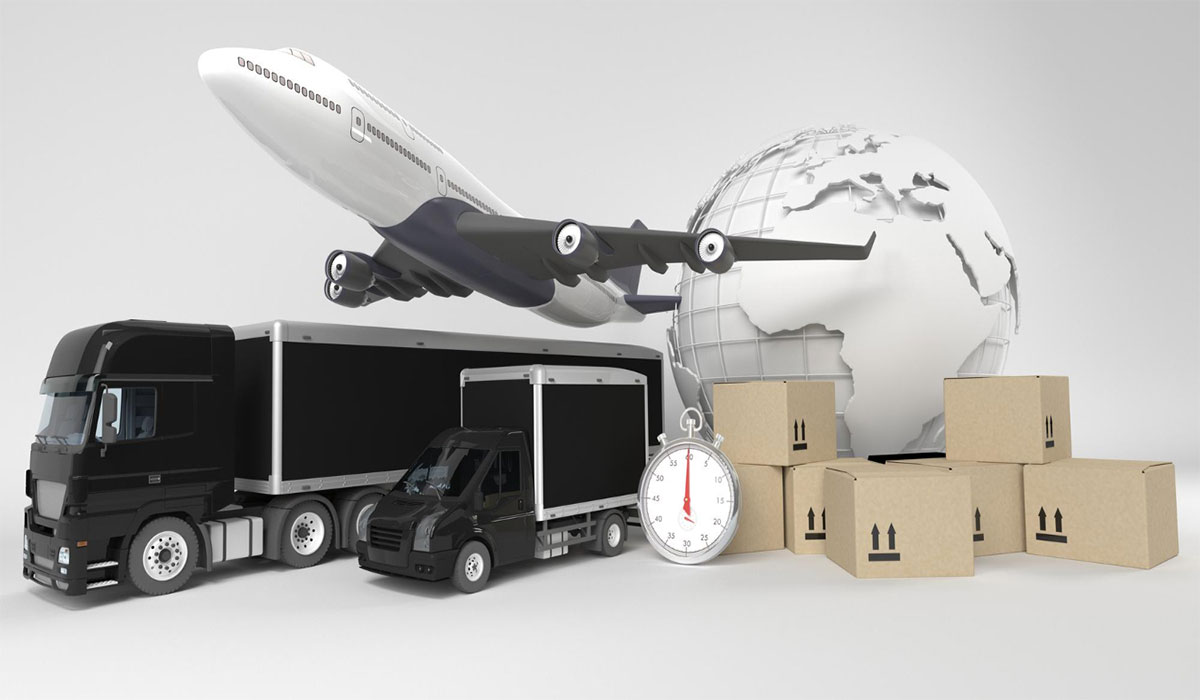
In the fast-paced world of e-commerce, where consumers click to purchase from the comfort of their homes, the demand for efficient shipping and freight forwarding solutions has never been higher. As the e-commerce boom continues to reshape the retail landscape, freight forwarding plays a crucial role in meeting the challenges posed by surging online orders. This blog explores the dynamics of this transformation, highlighting the key areas of adaptation, such as shipping and freight forwarding, customs clearance, warehousing, and innovative freight forwarding solutions.
1. Shifting Dynamics in Shipping and Freight Forwarding:
The rapid growth of e-commerce has necessitated a paradigm shift in shipping and freight forwarding strategies. Traditional models are being reevaluated to accommodate the speed and flexibility demanded by online shoppers. Freight forwarders are adopting agile shipping solutions to ensure timely deliveries, exploring options like express shipping and efficient last-mile delivery services.
2. Customs Clearance Challenges in E-Commerce:
The surge in cross-border e-commerce transactions brings forth new customs clearance challenges. Freight forwarders are investing in technology and expertise to navigate the complexities of international regulations swiftly. Automated customs clearance processes and partnerships with global agencies are becoming essential for expediting shipments and ensuring a seamless flow of goods across borders.
3. Warehousing Innovations to Meet Demand:
E-commerce success hinges on the efficiency of warehousing operations. Freight forwarders are increasingly turning to advanced technologies, like automated storage systems and real-time inventory tracking, to enhance warehouse management. Strategically located distribution centers are also emerging as a solution to reduce shipping times and cater to the growing demand for quick deliveries.
4. Tailored Freight Forwarding Solutions:
As e-commerce introduces a diverse range of products, from small parcels to oversized items, freight forwarding solutions need to be flexible and scalable. Freight forwarders are customizing solutions to accommodate the unique shipping requirements of different industries. Specialized services for fragile items, temperature-sensitive products, and bulk cargo are becoming commonplace.
5. Technology Integration in Freight Forwarding:
Technology is at the forefront of the adaptation process in freight forwarding. Blockchain technology is being explored to enhance transparency and traceability in supply chains. Data analytics is used for route optimization, demand forecasting, and to provide real-time visibility into the movement of goods. Artificial intelligence and machine learning are assisting in predicting shipping patterns and optimizing freight forwarding processes.
6. Meeting Sustainability Goals:
With increased awareness of environmental issues, there is a growing emphasis on sustainable freight forwarding practices. E-commerce companies and freight forwarders are exploring eco-friendly packaging options, optimizing transportation routes to reduce emissions, and adopting green technologies to align with sustainability goals.
7. Collaboration for Success:
E-commerce’s exponential growth has fostered collaboration between online retailers, e-commerce platforms, and freight forwarders. Partnerships allow for streamlined communication, shared resources, and a more cohesive approach to meeting the dynamic demands of the digital marketplace.
In conclusion, the e-commerce boom is reshaping the landscape of freight forwarding. To adapt to the surging online orders, freight forwarders are embracing innovative solutions in shipping, customs clearance, warehousing, and technology integration. As the e-commerce industry continues to evolve, the synergy between e-commerce platforms and freight forwarders will be critical in ensuring that goods flow seamlessly from sellers to consumers, meeting the expectations of today’s digitally-driven marketplace.
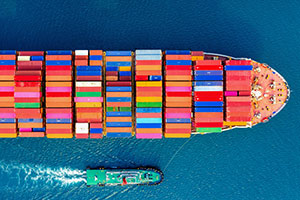
Moving things from one place to another is a challenging logistical movement in the complicated global trade and business sphere. In order to make sure that this process goes off without a hitch, effectively, and seamlessly – sea freight forwarding services are crucial. The world of maritime freight is massive – let’s read more about its significance, workings, and vital function in global shipping and freight forwarding.
The most important link in the supply chain is sea freight forwarding. It entails managing and coordinating the movement of products from one port to another via the sea. A well-run sea freight forwarder service is essential for any company trying to import or export goods. These firms serve as middlemen between the shipper and the carrier, handling all paperwork, transportation plans, and customs clearance.
Dealing with other nation’s complicated customs laws and considerable documentation is one of the most challenging parts of international shipping. Experts in this area, sea freight forwarders, ensure that all required documents, including certificates of origin, bills of lading, and commercial invoices, are in order. They also assist in customs compliance, helping to navigate the often complex and ever-changing regulations.
Ocean freight forwarders have a vast network of contacts and information about various routes and carriers. This expertise allows them to help businesses choose the carrier that best fits their needs in terms of cost, transit time, and cargo requirements. They negotiate freight prices and arrangements on their client’s behalf to provide the most cost-effective and efficient oceanic cargo services and shipping options.
When the cargo is ready to ship, ocean freight forwarders coordinate its pickup and delivery to the port. They handle oceanic cargo services consolidation, ensuring that goods from multiple suppliers are combined for shipping in an efficient manner. They also manage cargo insurance, which provides peace of mind during an unanticipated mishap during transit.
In marine freight forwarding, efficiency is everything. These services optimize shipment routes, lowering costs and reducing travel times. They also enable real-time cargo tracking and visibility, allowing shippers to check the movement of their products throughout the route. This openness is critical for firms to plan their operations efficiently.
Unlike air freight forwarders, sea freight forwarders are increasingly taking initiatives to lessen the environmental effect of shipping in an era when sustainability is critical. They strive for more efficient routing, vessel selection, and enhanced cargo handling to reduce carbon emissions. They contribute to a better future for the business by embracing eco-friendly techniques.
Bottomline
The unsung heroes of international trade are sea freight forwarding services. They effortlessly connect shippers and carriers while negotiating the complexities of logistics, customs, and documentation. It is very different from air cargo logistics.
Look no further for a dependable partner to help you manage your worldwide shipping operations. Prime Logistics can help you expand your horizons while maintaining maximum efficiency and compliance. Choosing the appropriate marine freight forwarder may make or break your international shipping business. So, choose wisely!
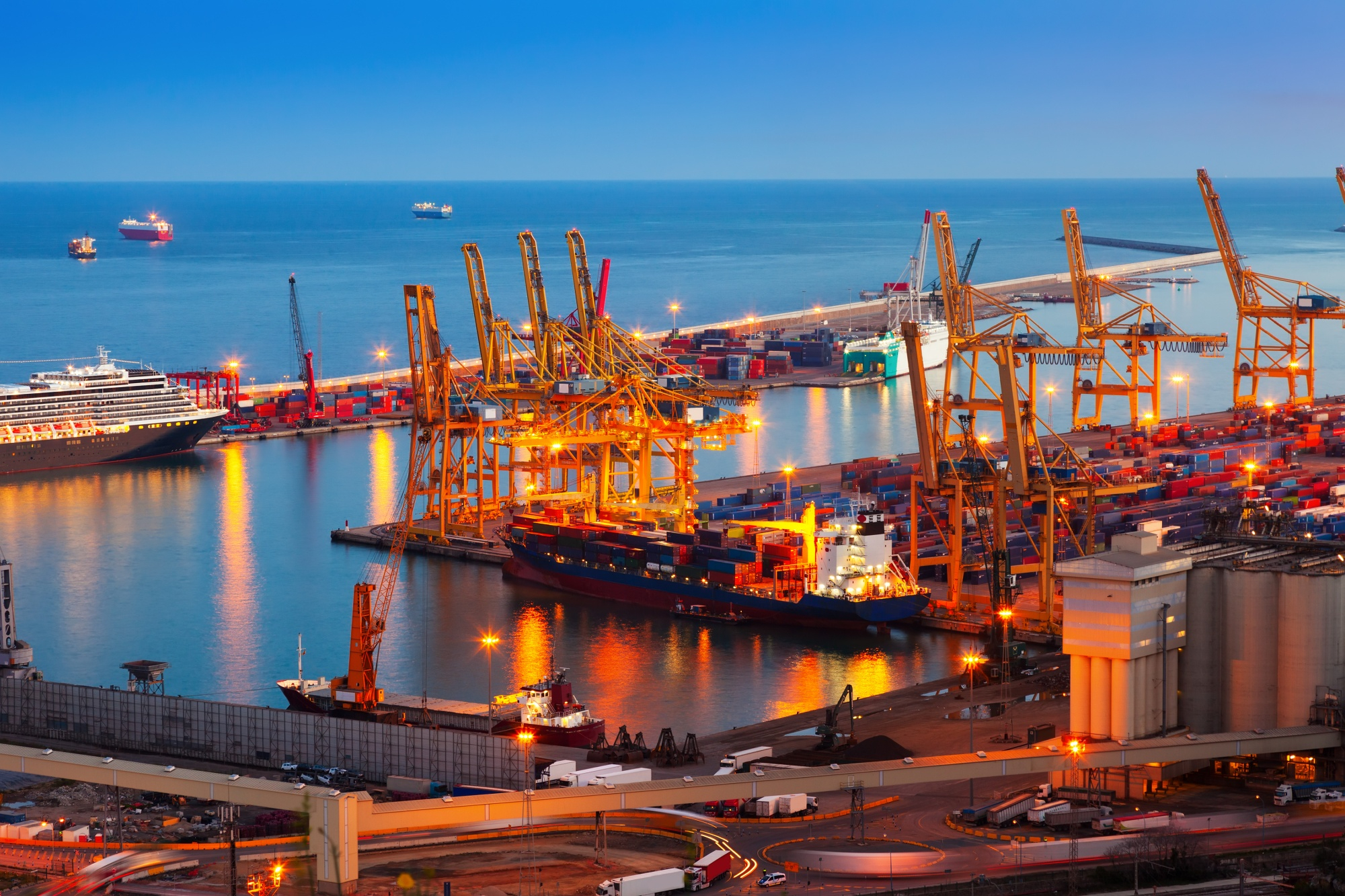
What is Cargo insurance?
When a load is in movement, it is susceptible to damage from unforeseen air, land, or sea accidents. If such a thing happens, the shipment will be damaged, and the burden placed on the carrier won’t be adequate to make up for the inconvenience caused.
In essence, cargo insurance is a risk reduction instrument that guards the company against monetary losses from damaged or destroyed goods. It is distinct from the obligation of carriers and offers coverage up to the maximum amount included. The occurrences included in the policy, such as car accidents, cargo forfeiture, damage from natural disasters, etc., are covered by the cargo’s insurance protection.
Types of Cargo Insurance
In general, there are two forms of cargo insurance.
Both renewable and fixed coverage are available for marine freight. If you are an irregular shipper, renewable insurance is preferable because it pertains to single journeys. For those who send shipments frequently, ongoing coverage will protect you for a certain amount of time, irrespective of how many shipments you send.
Benefits of Cargo Insurance
Cargo insurance protects the company’s responsibility in the case of an unanticipated incident. For the protection of shipments, this insurance provides a percentage of the cargo’s worth as claim funds and additionally covers the carrier to the greatest degree feasible. Whether or not your products have been destroyed, cargo insurance lowers the financial loss.
Common advantages include:
Conclusion
Insurance guarantees that a company’s profit creation remains roughly constant, even if shipments are damaged or lost. Owners must carefully select insurance coverage based on the type of their business and the items it sells. Prime Logistics Services is a trusted goods forwarding agent in the logistics sector. They efficiently manage everything from air freight logistics to customs clearance. Cargo insurance is a remarkable instrument for controlling liabilities since it includes high-reward insurance to split the costs of unforeseen losses.
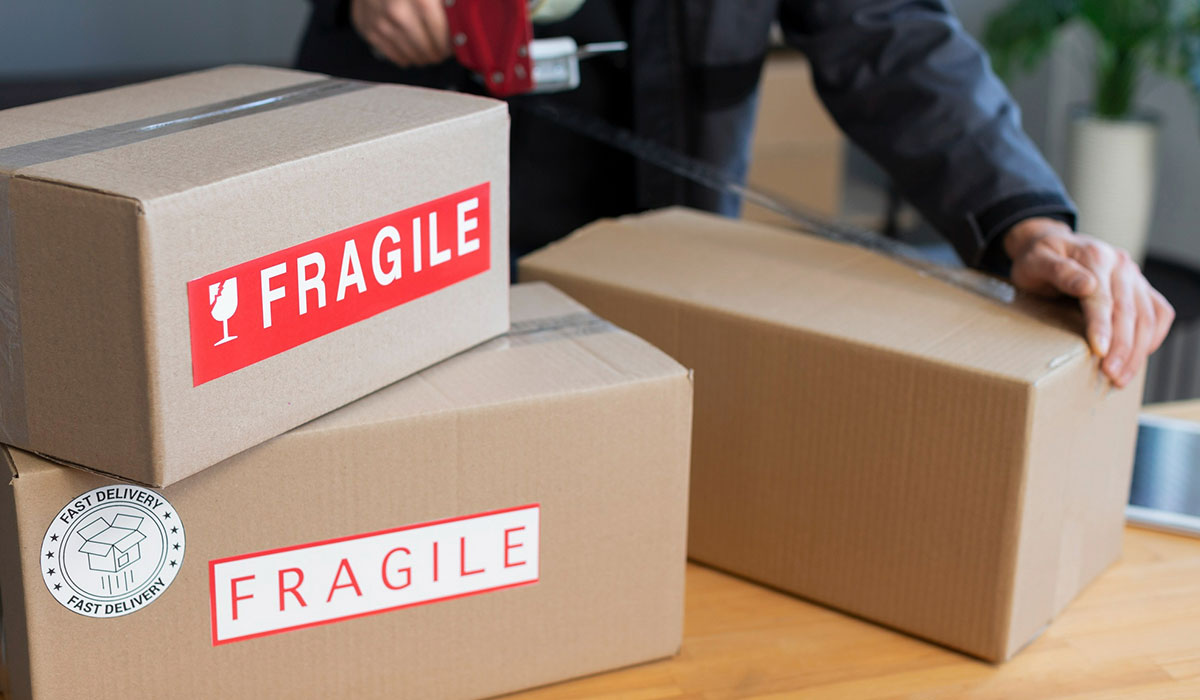
Bad weather can have significant challenges for your shipments considering shipping and freight forwarding. We cannot control bad weather or unforeseen events. Rain, snow, and extreme temperatures can damage goods and delay deliveries. You are required to ensure your cargo arrives at its destination safely and on time. Follow these five essential tips to protect and pack your shipment in adverse weather conditions.
Conclusion
In the unpredictable world of shipping and freight forwarding, lousy weather can present challenges. You can safeguard your shipments and ensure smooth deliveries with the right approach. By choosing weather-resistant packaging, waterproofing your shipments, insulating temperature-sensitive goods, partnering with a reliable freight forwarder for customs clearance processes, and monitoring weather updates, you can protect your cargo from the elements and guarantee timely deliveries. Contact Prime Logistics today to safeguard your shipments in any weather and experience seamless and secure shipping solutions tailored to your needs. Our commitment is to provide you with seamless shipping solutions, ensuring you retain peace of mind throughout the shipping journey.
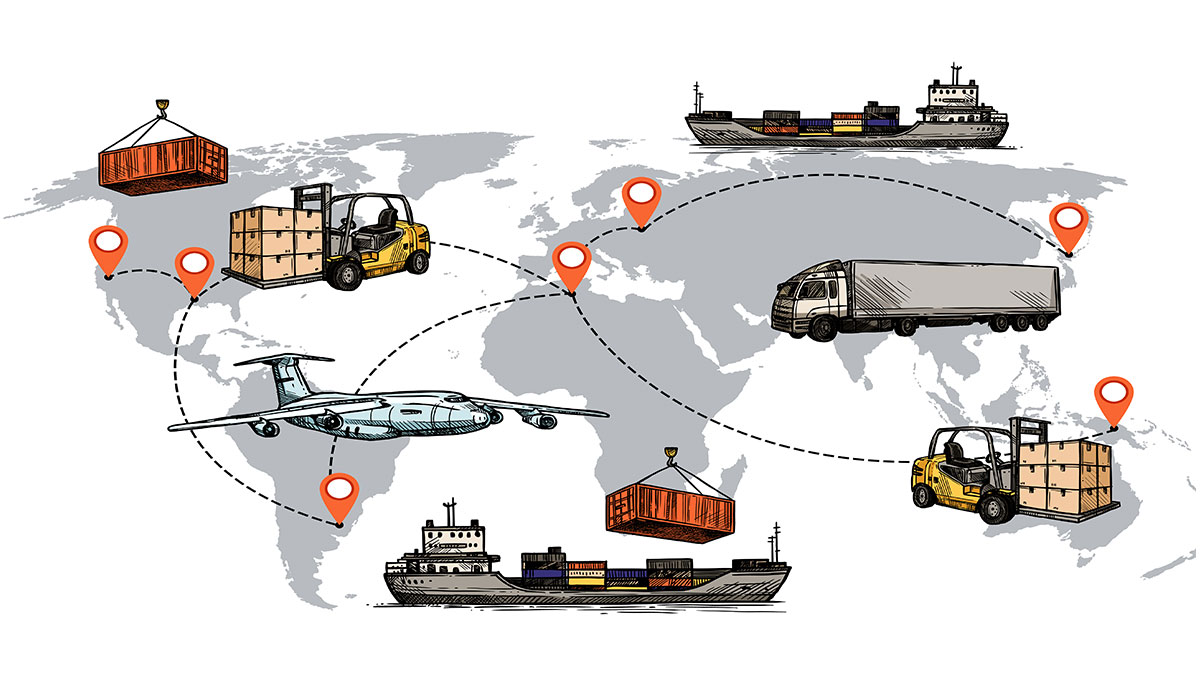
Today, global shipping is important in moving goods from one country to another in this interconnected world. You might be someone ordering products online, or you own a business and want to expand your reach; you must understand the numerous options for global shipping. You will get insights into different processes of shipping in this article.
Ocean Freight:
Oceanic cargo services are the most important part of global shipping. This is true for large shipments. Goods get transported in containers through cargo ships. There are several options for ocean freight like Less than Container Load (LCL) and Full container load (FCL)
Air Freight:
An air freight forwarder is the option when there is a need for speed. Goods get transported by airplanes. It provides efficient handling and quick delivery times. Air Freight is beneficial when transporting perishable goods, time-sensitive materials, and high-value products.
Rail Freight:
Rail freight offers an alternative mode of transportation for global shipping, especially for shipments involving continents with well-connected rail networks. It balances cost and transit time, offering faster delivery than ocean freight at a lower cost than air freight. Rail freight is particularly advantageous for landlocked countries or regions with extensive rail infrastructure.
Road Freight:
Road freight plays a crucial role in transporting goods within a country or region and is often used as part of the larger shipping process. It is highly flexible and allows for door-to-door delivery, making it an excellent choice for smaller shipments and last-mile logistics. Road freight is commonly used in conjunction with other shipping modes, such as transporting goods from a port to a distribution center.
Intermodal Shipping:
Intermodal shipping combines different modes of transportation, such as rail, road, and sea, to optimize the shipping process. This method allows for seamless movement of goods, reducing transit times and increasing efficiency. Intermodal shipping provides flexibility and cost savings, as it leverages the strengths of each mode while minimizing its limitations.
Customs Brokerage:
Navigating the complexities of customs regulations and documentation is a critical aspect of global shipping. Customs brokerage services help streamline customs clearance by ensuring compliance with import/export regulations, handling documentation, and facilitating communication with customs authorities. Engaging the services of a reliable customs broker can save time, prevent delays, and ensure the smooth passage of your goods through customs.
In conclusion, understanding your options for global shipping is essential to make informed decisions when moving goods from port to doorstep. Whether you choose ocean freight for cost-effective bulk shipments, air freight for speed and efficiency, rail freight for well-connected regions, road freight for local deliveries, or intermodal shipping for optimized logistics, each method has its advantages. Additionally, engaging a customs broker can simplify the customs clearance process, ensuring a smooth flow of goods across borders. By assessing your shipping needs and exploring these options, you can effectively manage your global shipping requirements and achieve timely delivery of your goods.
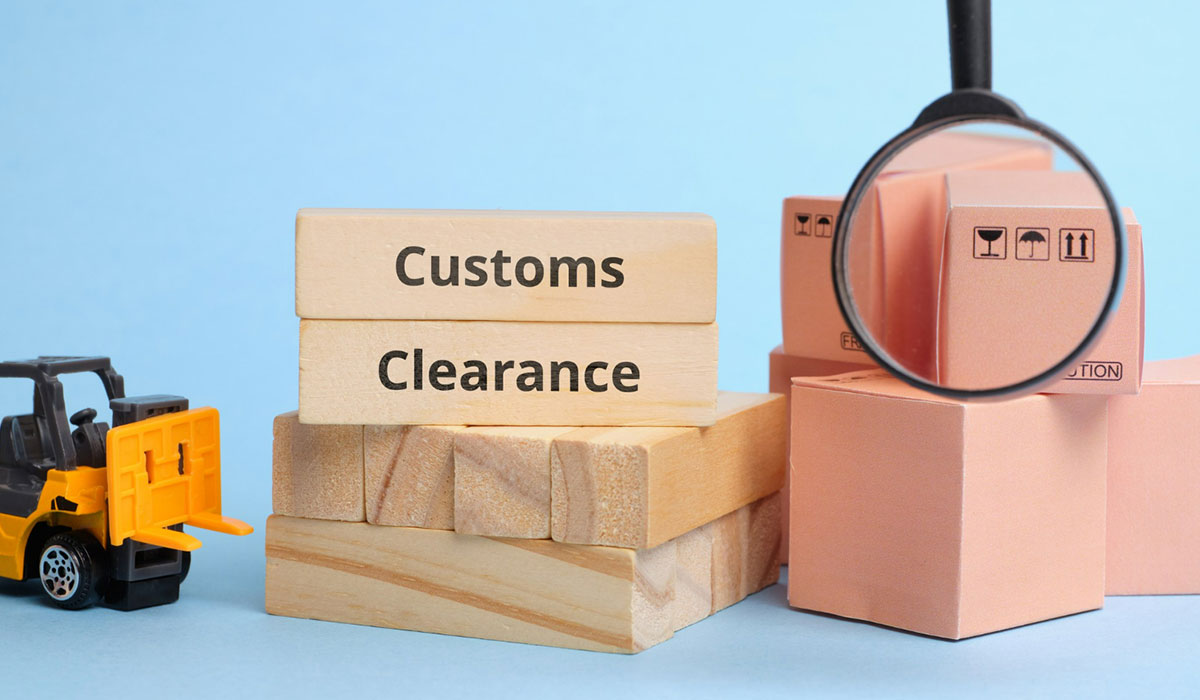
Custom clearances can open up opportunities for businesses to exchange goods and services across borders, allowing the greater reach of goods and contributing to overall economic growth. But let’s face it: customs clearance can be a real headache. The maze of regulations and procedures can leave even seasoned traders scratching their heads. This article will delve into the essential aspects of customs clearance, shedding light on its significance and the key considerations for smooth trade operations.
Understanding Custom Methods
When we talk about customs clearance, we’re referring to the whole process that goods have to go through when they cross international borders. It involves a bunch of official procedures like paperwork, inspections, and paying up duties and taxes.
Let’s take a look at the key components of customs check:
Documentation: Accurate and complete documentation is vital for customs clearance. We need to ensure that our commercial invoices, packing lists, bills of lading or airway bills, certificates of origin, and any necessary permits or licenses are in order. These documents provide important information about the goods, their value, source, and intended use.
Tariffs and Duties: As importers, we must understand the applicable tariffs and duties. Customs duties are taxes imposed on imported goods by the customs authority of the importing country, and tariffs are the specific rates at which these duties are calculated. This understanding is crucial for the proper costing and pricing of goods during our international trade transactions.
Compliance with Regulations: To ensure smooth customs clearance, we must adhere to various regulations, including trade policies, import/export restrictions, and product-specific regulations. We need to be aware of any applicable trade agreements or preferential tariffs that may impact our import/export process.
Inspection and Valuation: Customs authorities may conduct physical inspections to verify the accuracy of our documentation and ensure compliance with regulations. They also determine the value of goods for the assessment of duties and taxes. Factors such as transaction value, customs valuation methods, and any additional charges or discounts are taken into consideration during this process.
Customs Brokers: We can simplify the customs clearance process by utilizing the services of a licensed customs broker. These professionals possess in-depth knowledge of import/export regulations, procedures, and documentation requirements. They assist in preparing and submitting the necessary paperwork, facilitating communication with customs authorities, and ensuring compliance.
Let’s explore the benefits of efficient customs clearance:
Reduced Delays: Smooth customs clearance helps minimize delays in the movement of goods, ensuring timely delivery and reducing supply chain disruptions.
Cost Savings: Proper customs clearance ensures accurate valuation, reducing the risk of overpayment or underpayment of duties and taxes. Additionally, avoiding penalties or fines for non-compliance contributes to cost savings.
Enhanced Compliance: Adhering to customs regulations builds trust and credibility with authorities, fostering better relationships and reducing the likelihood of future disruptions.
Navigating the intricacies of customs clearance is crucial for successful international trade operations. By partnering with experienced logistics providers, such as Prime Logistics, who specialize in air cargo logistics, we can further enhance efficiency and ensure seamless customs clearance for our businesses engaged in global trade.
You may also like to read 10 Logistics Challenges Ecommerce Businesses Face
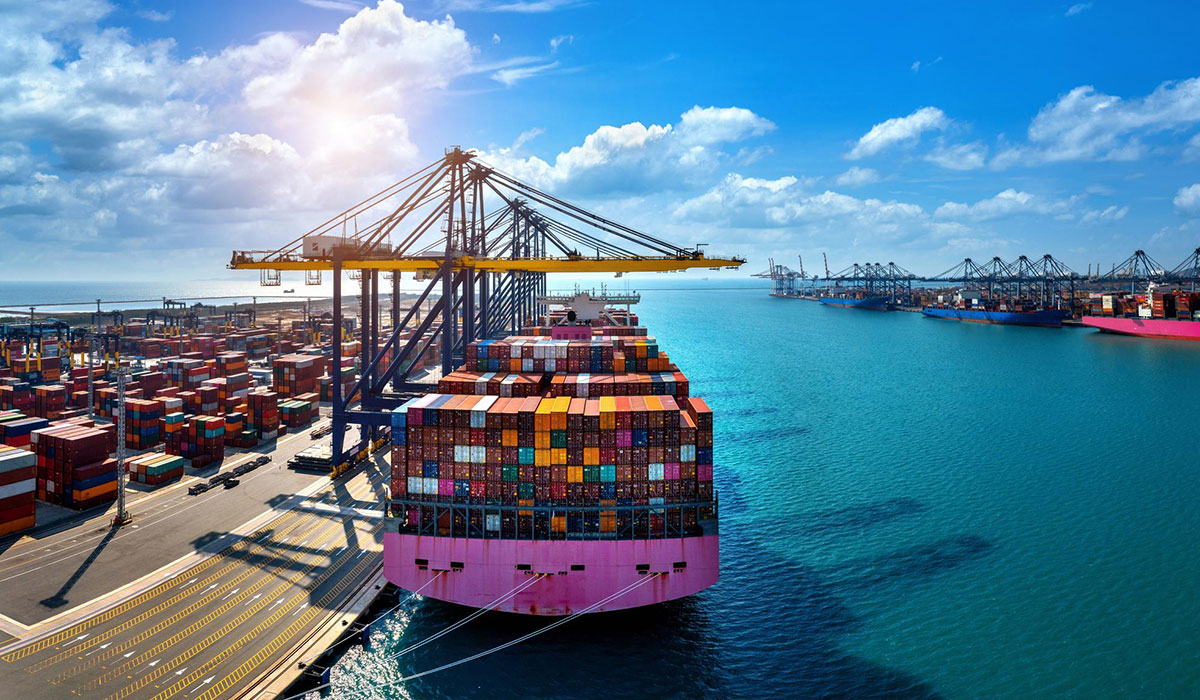
Shipping machinery overseas can be a daunting task, especially if you are doing it for the first time. It involves a lot of planning, coordination, and execution to ensure that the machinery arrives at its destination safely and on time. One of the most critical aspects of shipping machinery overseas is choosing the right shipping and freight forwarder. In this blog, we will provide tips on how to choose the right shipping and freight forwarder, and discuss the different shipping options available for shipping machinery overseas, including air freight services and sea freight solutions.
Tip 1: Choose a Reputable Shipping and Freight Forwarder
Choosing a reputable shipping and freight forwarder is critical when shipping machinery overseas. A good freight forwarder can help you navigate the complex regulations and paperwork involved in international shipping, as well as provide valuable advice on packaging, insurance, and customs clearance. Before choosing a freight forwarder, do your research and ask for references. Look for a company that has experience shipping machinery and has a good reputation in the industry.
Tip 2: Get the Right Packaging
Proper packaging is essential when shipping machinery overseas. Machinery must be securely packed to prevent damage during transportation. The packaging should also comply with the regulations of the destination country. Your freight forwarder can advise you on the best packaging materials and methods to use.
Tip 3: Choose the Right Shipping Method
There are two main shipping methods for shipping machinery overseas: air freight services and sea freight solutions. Each method has its advantages and disadvantages, and the choice depends on your specific needs.
Air Freight Services: Air freight services are faster and more expensive than sea freight solutions. They are ideal for shipping small, high-value machinery that needs to be transported quickly. Air freight services are also suitable for urgent shipments that cannot wait for the slower sea freight options. However, air freight services have weight and size restrictions, and they may not be suitable for large machinery.
Sea Freight Solutions: Sea freight solutions are slower and cheaper than air freight services, but they are suitable for shipping large and heavy machinery. Sea freight solutions include full container loads (FCL) and less than container loads (LCL). FCL is ideal for shipping large machinery as it provides a dedicated container. LCL is suitable for shipping small or medium-sized machinery that does not require a full container.
Tip 4: Ensure Proper Insurance Coverage
It is essential to have proper insurance coverage when shipping machinery overseas. Machinery is often expensive, and any damage during transportation can result in significant financial losses. Your freight forwarder can help you obtain insurance coverage that meets your specific needs.
Tip 5: Understand Customs Regulations
Each country has different customs regulations and procedures, and it is essential to understand these before shipping machinery overseas. Your freight forwarder can provide valuable advice on customs clearance and help you navigate the complex customs procedures. It is also essential to ensure that all necessary documents, such as export and import licenses, are in order.
Conclusion
Shipping machinery overseas requires careful planning, coordination, and execution. Choosing the right shipping and freight forwarder is critical to ensure that your machinery arrives at its destination safely and on time. It is essential to choose a reputable freight forwarder, get the right packaging, choose the right shipping method, ensure proper insurance coverage, and understand customs regulations. By following these tips, you can ensure a smooth and successful shipping experience for your machinery.
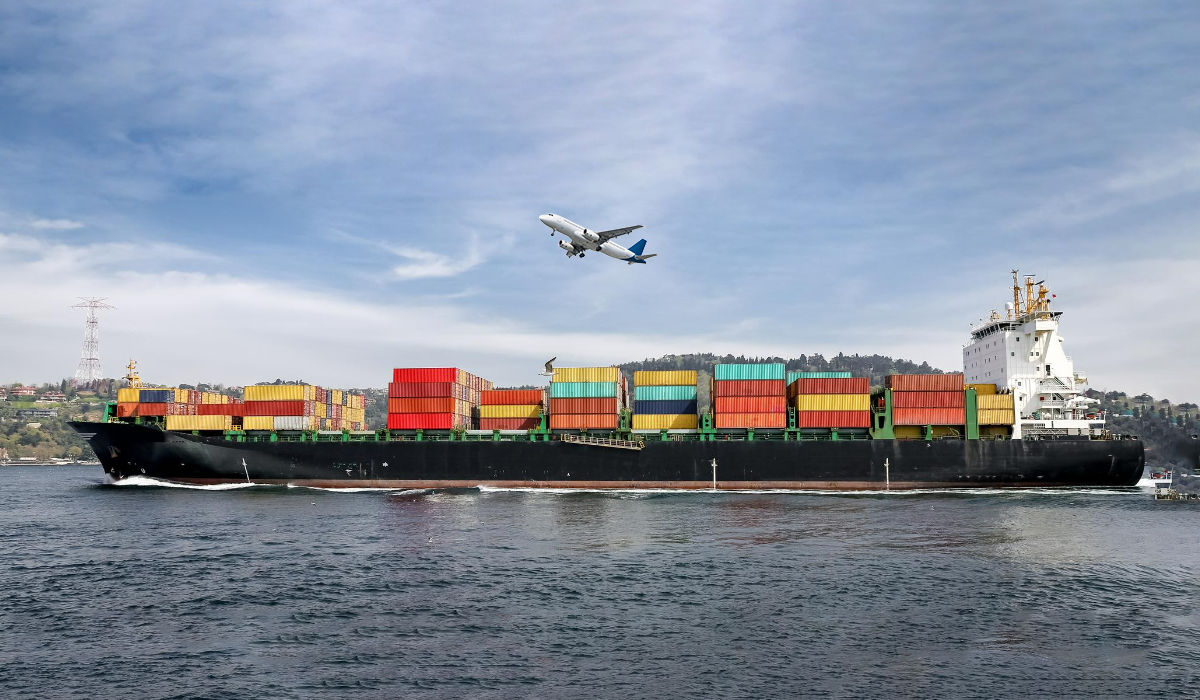
When it comes to shipping goods internationally, several parties are involved in the process. Two of the most crucial players in this process are freight forwarders and non-vessel operating common carriers (NVOCCs).
Freight Forwarders
A sea freight forwarder is a company that specializes in arranging and organizing the shipment of goods from one location to another. They act as intermediaries between shippers and carriers and are responsible for managing the logistics of the shipment. Sea Freight forwarders are experts in the transportation industry and have a wide range of knowledge about shipping regulations, customs clearance, and documentation requirements.
Freight Forwarders offer a range of services
Sea freight services arrange for the transportation of goods from the point of origin to the destination. They work with various carriers, including air, sea, and land, to find the best transportation options for their clients. Sea Freight forwarders are responsible for ensuring that all customs clearance requirements are met. They handle the necessary paperwork and documentation to ensure that the goods can pass through customs without any issues. Freight forwarders can arrange for cargo insurance to protect the goods during transit. Freight forwarders can arrange for the storage of goods at a warehouse or storage facility until they are ready to be shipped.
NVOCCs
A non-vessel operating common carrier (NVOCC) is a company that provides transportation services without owning any vessels. NVOCCs do not have their ships but are responsible for booking cargo on behalf of their clients with ocean carriers. NVOCCs act as intermediaries between shippers and ocean carriers, much like freight forwarders.
NVOCCs offer a range of services
NVOCCs book cargo on behalf of their clients with ocean carriers. They negotiate rates and ensure that the cargo is transported safely and efficiently. NVOCCs consolidate small shipments from multiple clients into one container to reduce costs and increase efficiency. NVOCCs issue bills of lading to their clients, which serve as a contract between the shipper and the carrier. NVOCCs handle all the necessary documentation for the shipment, including customs clearance and other regulatory requirements.
Difference between Freight Forwarders and NVOCCs
While both freight forwarders and NVOCCs play a crucial role in the shipping industry, there are some key differences between them. The primary difference is that freight forwarders provide a broader range of services than NVOCCs. Freight forwarders handle all aspects of the transportation process, from booking cargo to arranging customs clearance and insurance. NVOCCs, on the other hand, specialize in booking cargo with ocean carriers and do not offer the same range of services as freight forwarders.
Another difference is that NVOCCs work exclusively with ocean carriers, while freight forwarders work with various carriers, including air and land. Freight forwarders have a more extensive network of carriers, allowing them to find the most efficient and cost-effective transportation options for their clients.
Conclusion
In conclusion, both freight forwarders and NVOCCs play critical roles in the shipping industry. Freight forwarders offer a broader range of services, while NVOCCs specialize in booking cargo with ocean carriers.

As a business owner, you must understand the importance of a smooth and good supply chain. Technology has advanced worldwide, with new challenges occurring in supply chain integration progressively, some of which are mentioned below:
Integration of air freight logistics and air cargo logistics
If you depend upon air freight for your business, you must ensure that your air freight and air cargo logistics are completely integrated. Air freight forwarders and air cargo logistics providers must work together efficiently so that your products are transported early and easily.
Coordination between oceanic cargo services and sea freight services
If your business relies on oceanic cargo and sea freight services, you have to ensure that both services work in coordination. It can be challenging as various sea freight services have separate operating processes, which may make it difficult to make them work together. You have to ensure that parties who work in the transportation field of the same product, work together.
Ensuring supply chain visibility
As you know, global supply chains have increased and become very complicated. It is challenging to track your products as they move through the supply chain. You have to ensure visibility in each step of the supply chain. It can be challenging to have visibility of products from their origin to their final destination.
Integration with e-commerce platforms
Most businesses have moved online; you must ensure that your supply chain integrates with e-commerce platforms. You should be able to take orders from e-commerce platforms and deliver them using your supply chain. It can be challenging to integrate with e-commerce platforms because various platforms may have some specific requirements.
Ensuring compliance with regulations
As you know, global supply chains have become very complicated, and it can take time to complete the required regulations and laws that apply to your products. For instance, various countries have rules and regulations regarding labelling and packaging. You must ensure that your system complies with all such applicable laws and regulations.
Dealing with disruptions
Disruptions can occur at any time in the supply chain, for example, due to natural disasters, political unrest, or other reasons. It would help if you had a strategy to deal with these disruptions, like having alternative transportation tracks. It can be challenging. It needs a deep study and understanding to continue the supply chain and handle potential risks.
Ensuring sustainability
The world has become more environmentally friendly. It would be best to keep your supply chain sustainable by reducing your carbon footprint using environmentally friendly packaging. Maintaining sustainability is a challenging task requiring some important changes in your current supply chain process.
Conclusion
In conclusion, supply chain integration is crucial for the success of any business. However, with the increasing challenges of technological advancements, preparing for the future is vital. From ensuring supply chain visibility to dealing with disruptions, businesses need to stay up-to-date and implement strategies to overcome these challenges. By doing so, they can stay ahead of the game and maintain a competitive edge in the market.
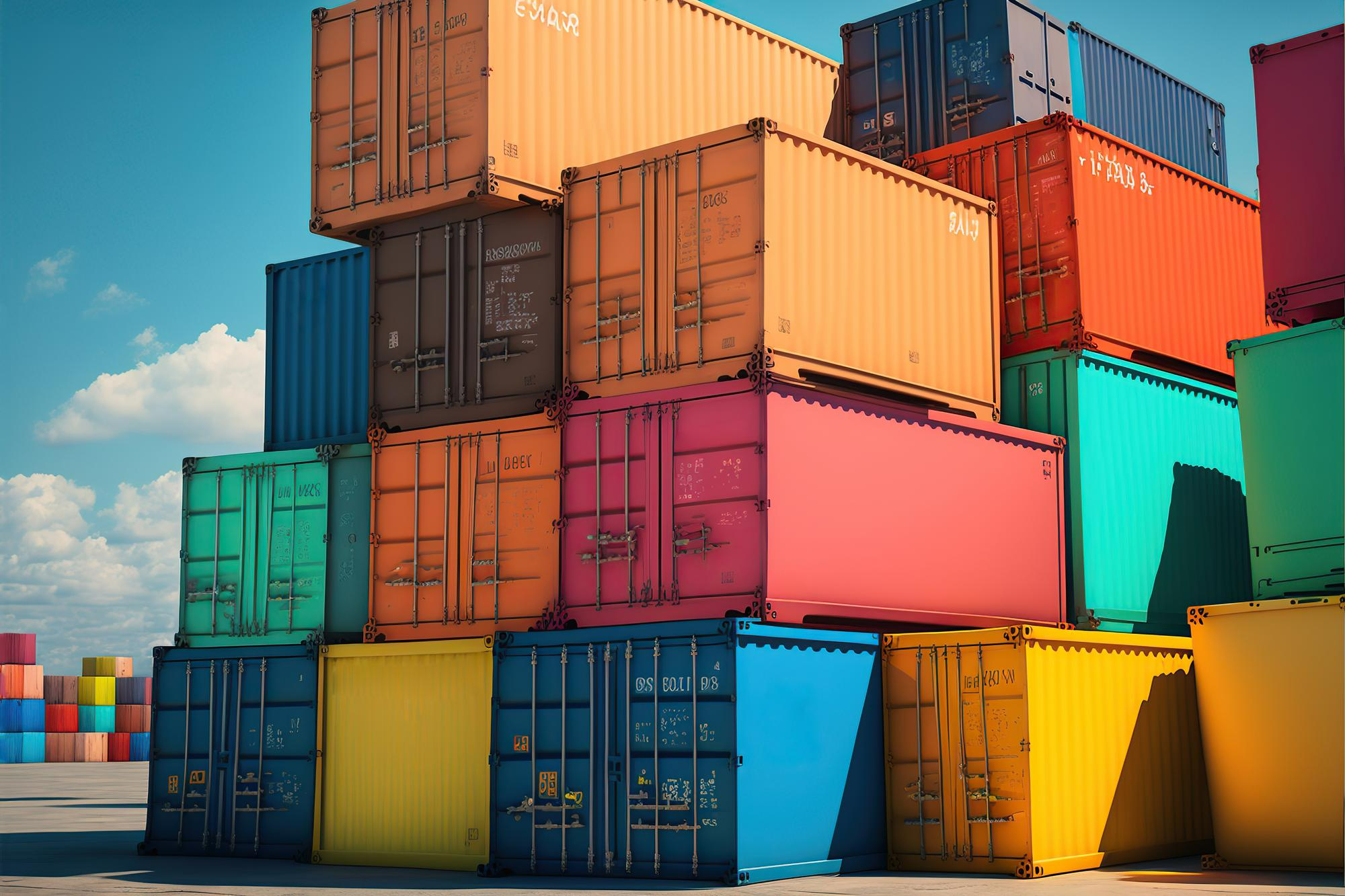
There are a variety of container types in the market. Every container is made for different types of cargo. The appropriate containers keep the cargo safe and also save money. The shipping containers can be used for some applications. The transportation infrastructure in air cargo logistics is designed considering the container dimensions. Here are the common container types and sizes.
Standard Container
There are two standard sizes of the commonly available container type- 40ft containers and 30ft containers. The internal height is 7.9ft/2.39m & 7.9ft/2.39m, and the internal width is 7.9ft/ 2.4m & 7.8ft/2.35m for both types of containers.
| Measurements | 40ft | 20ft |
| Internal length | 39.5ft/12.03m | 19.4ft/ 5.9m |
| Tare weight | 8,268.8 lbs/ 3,750kg | 5,071.5 lbs/ 2,300kg |
High Cube Container
High cube containers are similar to standard containers in structure and come in two sizes- 45ft and 40ft for air freight logistics. The internal height of the 45ft HC containers is 2.70m / 8.10ft, and the 40ft HC containers are 2.70m / 8.10ft. The internal width is 2.35m / 7.8ft and 2.35m / 7.8ft, respectively.
| Measurements | 45ft HC | 40ft HC |
| Internal length | 13.55m/44.5ft | 12.03m/39.5ft |
| Tare weight | 4,800kg / 10,552 lbs | 3,900kg / 8,598 lbs |
Reefer Containers
These are refrigerators in the size of a container and are used to transport goods in air cargo logistics that are sensitive to temperature.
| Measurements | 40ft HC | 40ft | 20ft |
| Internal height | 2.25m / 7.4ft | 2.55m / 8.36ft | 27m / 7.5ft |
| Internal width | 2.28m / 7.5ft | 2.29m / 7.5ft | 2.29m / 7.5ft |
| Internal length | 11.56 m/ 37.9ft | 11.56m / 37.9ft | 5.44m / 17.9ft |
| Tare weight | 4,480kg / 9,880lbs | 4,800kg / 10,584 lbs | 3,080kg / 6,791.4 lbs |
Double Door Container
These containers have doors on both ends and are very convenient for unloading and loading a container. They come in 40ft HC, 40ft, and 20 ft dimensions. Their internal lengths are 12.03m / 39.5ft and 5.9m / 19.4ft, and their internal widths are 2.34m / 7.8ft, 2.4m / 7.9ft, and 2.35m / 7.8ft, respectively.
| Measurements | 40ft HC | 40ft | 20ft |
| Internal height | 2.69m / 8.9ft | 2.39m / 7.9ft | 2.39m / 7.9ft |
| Tare weight | 5,200kg / 11,470lbs | 3,750kg / 8,268.8 lbs | 2,300kg / 5,071.5 lbs |
Open-Top Container
The roof of the open-top containers is covered with sheets of tarpaulin instead of hardcover. They come in three sizes 40ft, 40ft HC and 20ft. Their internal lengths are 12.03m / 39.5ft, 12.03m / 39.5ft, and 5.89m / 19.4ft, and internal widths are 2.35m / 7.8ft, 2.4m / 7.9ft and 2.35m / 7.8ft, respectively.
| Measurements | 40ft HC | 40ft | 20ft |
| Internal height | 2.70m / 8.10ft | 2.34m / 7.8ft | 2.39m / 7.9ft |
| Tare weight | 4,250kg / 9,370lbs | 3,980kg / 8,774 lbs | 2,260kg / 5,982 lbs |
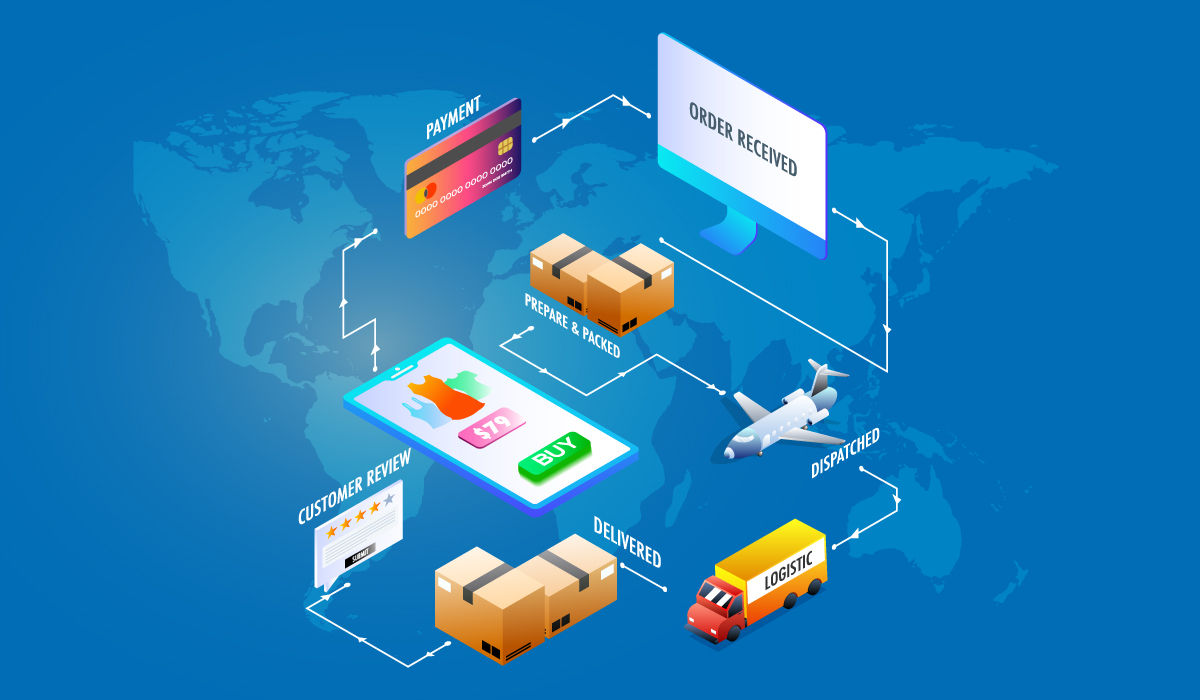
Ecommerce businesses have flourished in the past couple of years as the world was battling COVID-19, and it was essential to maintain social distancing. Most people stopped going out and turned to online shopping. Hence, it became crucial for ecommerce businesses to maintain an efficient logistic system to process and deliver orders on time. This has created various logistical challenges that must be overcome to meet the customers’ ever-increasing demands.
Here are the 10 logistics challenges faced by Ecommerce businesses

It might seem that it is needless to switch air freight forwarders if you have grown close to your current one. The most important part of a freight forwarder’s role is to have a positive working relationship with them. It might be the right thing for you to do for the success of your business.
It takes a long time for firms to build a solid rapport with the freight forwarding provider of their choice. It takes time to educate a freight forwarder about your company’s operations, business practices, and the level of service you want. Therefore, it is standard if you find it challenging to move to a new freight forwarding company or let go of your current one.
Role of Freight Forwarders
The company that ships the goods and the location where they will be used as a final destination are connected through freight forwarders. Although they don’t execute the shipments themselves, they offer various transit options, including air freight shipment, rail freight, sea/ocean freight, and road freight.
In order to negotiate the lowest price, freight forwarders leverage their established relationships with carriers and partners, including trucking firms, transoceanic lines, and experts in air transportation. Using established commercial routes with frequent departures or via charter, weighing several offers, and selecting the best route that optimizes speed, cost, and reliability while considering all the factors required for each case study are two options.
Five indicators that it’s time to switch freight forwarders:
Need to look for a freight forwarding firm that can handle the volume of incoming goods or one that is larger. If a company just expanded its business market or product line, the local neighborhood forwarder might no longer be able to satisfy its needs as every forward is different. Some solely focus on air. Some are only domestic in nature. Others mainly work as truck traders. Make sure the whole range of services offered by a collaboration with a full-service logistics provider aligns with the aspirations for business expansion.
A “Good Time” to Change Freight Forwarders Exists?
Big business decisions are seldom simple or enjoyable, particularly when they affect a strong working relationship between a shipper and a sea freight forwarder in Mumbai.
Most shippers significantly rely on their freight forwarders to handle all tasks connected to their business’s overseas transportation; thus, the idea of ever switching freight forwarders seems like a bother.
In order to run a business, users still depend on imported and exported goods, whether startups ship once a month or Fortune 100 organizations ship 500 times a year. There is a need for dependability in shipping and logistics to satisfy the clients.
Conclusion
Prior to issues becoming insurmountable, it’s critical to notice the indicators that you may need to hire a new freight forwarder to handle this crucial aspect of your organization.
It may not seem simple to switch when you’ve been doing business with a company for a while, but they do most of the work, so it’s fairly seamless. The issues mentioned above, however, regularly appear out of nowhere in real life, and before anyone realizes it, the entire supply chain has entirely broken down. They work with newly created businesses and those that have been importing and exporting for some time. Making the supply chain visible, dependable, and smooth is how they demonstrate the Prime Logistics difference.
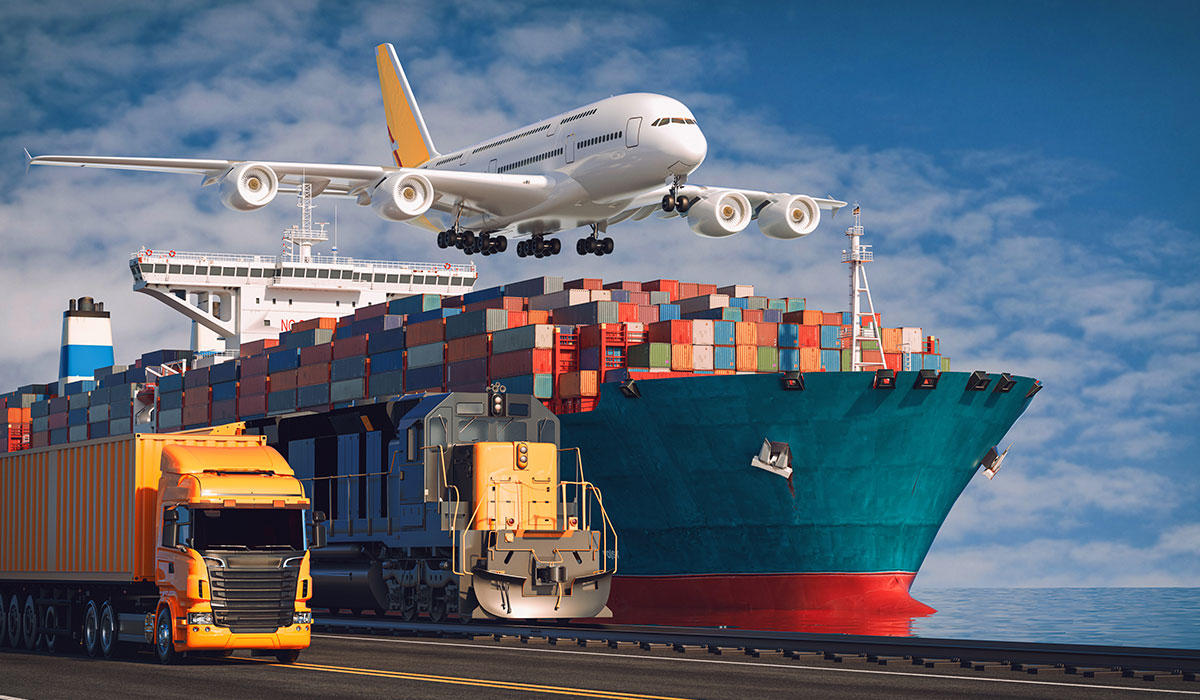
The logistics sector expects the National Logistics Policy to address its problems, improve India’s trade competitiveness, and open up more investment opportunities. They believe that if properly carried out, the strategy can usher in a technologically equipped ecosystem with optimized resource utilization, enhanced connection, and last-mile delivery, increasing total productivity.
With an estimated $215 billion market value and a CAGR of 10.5%, the logistics sector is considered to be the backbone of the Indian economy. Also, the sector employs about 22 million people directly and indirectly. This industry faces many challenges, including a high order intensity ratio, an increased tax structure, and expensive supply chain issues.
Based on the logic of this argument, the larger the degree of economic activity, the greater the requirement for adequate transportation to ensure that items are delivered via international parcel services to their appropriate locations. As a result, there is a need for better transportation and logistics systems. This causes a rise in demand, and the multiplier effect begins to work, causing the GDP to increase. Greater demand indicates that a country’s available factors of production have been exceeded, at which point it begins to trade with other nations to obtain the limited resources it requires.
Transportation and competition
The National Logistics Policy’s goals are to increase India’s trade competitiveness, create more jobs, and make conducting business easier, all of which will help India establish itself as a logistics hub. By reducing procedures with technology and digitization, the implementation of the strategy would result in a paradigm shift in the logistics sector. This policy will assist in integrating the supply chain and illustrate inter-ministerial cooperation.
A state’s economy may have a competitive advantage over the economies of other countries thanks to transportation services and supporting infrastructure. The US rail freight sector is a prime example of a competitive advantage in transportation. Due to our low bridges, containers cannot be placed on trains in the UK. American trains don’t have any height limits or low bridges; thus, they can be stacked two containers high. As a result, they have a competitive advantage over nations with weak bridges. Compared to countries without railways, such as the majority of Africa and South America, the US enjoys a clear edge.
Excluding Transportation from GDP
It is impossible to anticipate continued growth in the GDP and transportation activity. There must be a marginal utility point at which a further development unit has no impact on GDP.
Other non-economic variables that will disconnect transportation activity from GDP development include pollution and traffic congestion. Nobody expects all land to be used for roads and other logistics infrastructure, and land usage might negatively impact the environment.
Last, since more efficient transportation is less expensive, GDP should increase faster than transportation due to increased productivity and economies of scale, showing that the relationship between transportation and GDP has been broken.
Demand- or supply-led?
Finally, they should decide whether the rise of transportation and logistics services is driven by demand or supply. Why is this essential? Logistics designers need to know whether the increase in transportation capacity is caused by growth that has been created, or if it is caused by other factors.
Supply-led
The growth that is sparked by these activities is supply-led. Government and private sector investments in transportation and logistics infrastructure will increase the ability to produce goods and services, increasing demand. Governments frequently take this action to boost economic growth: They invest in infrastructure. Increased transportation, logistics, and associated infrastructure facilitate economic development. Better transportation facilities enhance access to additional markets, and as the efficient vehicle is not expensive, it is also used more frequently. The local economy will be indirectly impacted by large-scale transportation infrastructure developments, as the multiplier effect supports the expansion of logistics companies.
Demand-led
Demand-driven growth could be more predictable. Demand for transportation is driven by investments in overall economic development or by consumers. Transportation services can only be economically viable if there is a demand for them, which is different from supply-led growth, which focuses on growing transportation and logistics capacity. Latent and disclosed demand are two possible sources of demand. Actual goods movement, or people’s desire to move more objects, serves as the foundation for revealed demand. Latent demand is the potential unmet demand that results from insufficient transportation infrastructure. If a retail park is created outside of a town, that is an example of latent demand; the demand is present after the project is built.
Conclusion
According to the stakeholders, the national logistics policy will introduce a new approach to the nation’s International courier services environment, increasing the efficiency of supply chains. The newly developed policy, according to logistics software providers, will enable a modal shift in logistics away from the current excessive on roads (over 60% share vs 25% internationally) and toward trains (30% share vs about 60% globally) and waterways, which currently make up 5% of the modal mix.
To sum up, NLP is a big step in the right direction, and the industry is already seeing more local and foreign money coming in. Moreover, the program would boost investment, promote innovation, and raise industrial competition.
© 2021 Prime Logistics - All Rights Reserved
Powered by: Purple Tuche